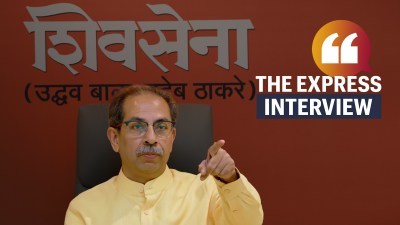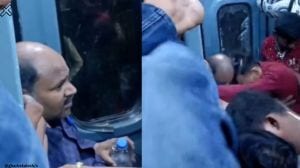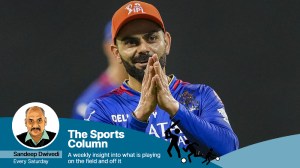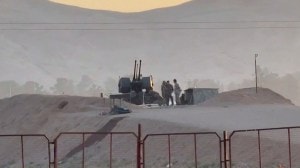- India
- International
Madhya Pradesh plans bridge module as studies show students far behind grade
Starting August 1, a basic learning module, split into three parts, would be covered over four months, so that students can be brought up to their grade should, as expected, all classes start by then.
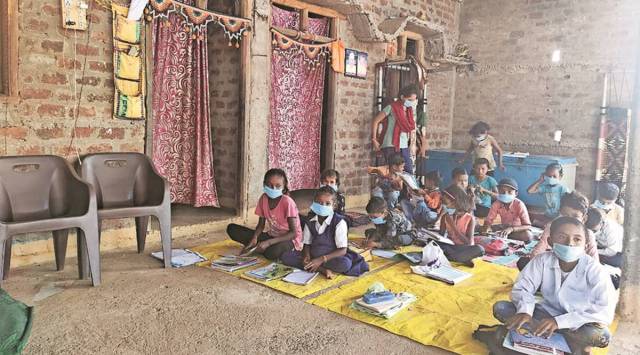 The learning module is to be covered over four months
The learning module is to be covered over four monthsIT WASN’T easy but Sitaram Dewar, 40, a farmer owning 10 acres in Raisen district of Madhya Pradesh, put together some money to buy a mobile phone last year so that his daughter Neetu, entering Class 9, and son Ashish, a grade younger, could follow the online classes being conducted by their government schools. Still, to Dewar’s worry, Ashish is now struggling in basic math, which he once excelled at.
After a study across five states by the Azim Premji Foundation confirmed findings of its own Rajya Shiksha Kendra regarding the alarming regression in learning among students over the year of the pandemic and school shutdowns, the Madhya Pradesh government is set to roll out a course to make up the gap. Starting August 1, a basic learning module, split into three parts, would be covered over four months, so that students can be brought up to their grade should, as expected, all classes start by then.
When Covid forced schools to shut down, the state government had made course material available online, as well as over TV and radio transmissions. However, the inadequacy of this compared to in-person teaching was shown by an Azim Premji Foundation study in January 2021 to assess the foundation abilities of students compared to their previous class. Released in February, it said that about 92% of children had regressed in one particular language ability across all classes while the regression in mathematical skills was seen among 82% of them.
The foundation covered 16,067 government school students, including 1,767 in Madhya Pradesh. It submitted its findings to the Centre, which later shared them with states.
Ashok Prateek, Deputy Director of Rajya Shiksha Kendra (RSK), says till then they had no scientific study to show the effect of school shutdowns on the 80 lakh-odd government school students in the state till Class 8. “The findings matched the feedback we had received from our field officers.” It was then that the idea for a bridge course was formalised. A body under the Madhya Pradesh Education Department, the RSK looks after elementary education, as well as the State Council for Education Research and Training, Shiksha Mission and adult education.

An internal assessment by the RSK had also shown that while textbooks reached 98% of the 80 lakh government school students till Class 8, only 30.9% could access material over WhatsApp during the lockdown, while the figure for radio and TV was 12% and 25% respectively.
While the government had announced mohalla classes to reach such students, these faced practical challenges. Preeti Dawar, a middle-school government teacher in Alirajpur district, points out that during the first lockdown even transport was suspended, making travel difficult. “Often when we held mohalla classes at a student’s house, the family would be inconvenienced and we had to shift to the verandah. Students found it hard to focus with so much happening around them.”
A UNICEF study between August and October 2020, across Assam, Bihar, Gujarat, Kerala, Madhya Pradesh and Uttar Pradesh, also found MP especially lagging in online classes. The study found that nearly 60% government school students in MP did not use any remote learning materials, much higher than the 40% average in the other states. Besides, it said, 40% of MP parents struggled to pay Internet recharge amount, 28% found it difficult to buy a device, while another 24% reported poor network connectivity.
About 57% of parents told UNICEF surveyors that they wanted schools to be reopened, and nearly 50% reported that their child’s mental health was ‘poor’ to ‘very poor’. In terms of support, the study said, 30% of parents demanded textbooks followed by 28% who wanted a device. The study recommended that MP should ensure textbooks, worksheets and midday meals, and facilitate calls to home and visits by teachers.
As per the learning module plan that starts August 1, under the first leg, ‘Prayas’, worksheets will be provided to re-interest students in curricula through fun activities. This will be followed by ‘Dakshata Unnayan’, where students will cover the basic concepts of previous grades based on how much they have regressed. In the final leg, ‘N-1, students will revise again the basic concepts.
A network of teachers and mentors will monitor the students. Apart from the 1.75 lakh teachers of government schools, the RSK is looking at roping in 3,500 teachers enrolled at its District Institutes of Education and Training (DIET).
RSK Director S Dhanraju said DIET teachers had already received training regarding the module. “We may also rope in 30,000-odd students of Diploma in Education in private colleges,” Dhanraju said, adding that teachers would be graded on their ability to help the students.
Officials admit that despite their best plans, four months might not prove enough to make up for a lost year. “It will take them at least two years of school learning to get back (to where they were)… but this is a start,” points out one.
As per the phase-wise reopening of schools announced by the state government, Classes 11 and 12 are to start July 25 at 50% capacity, followed by junior classes.
Apr 20: Latest News
- 01
- 02
- 03
- 04
- 05











